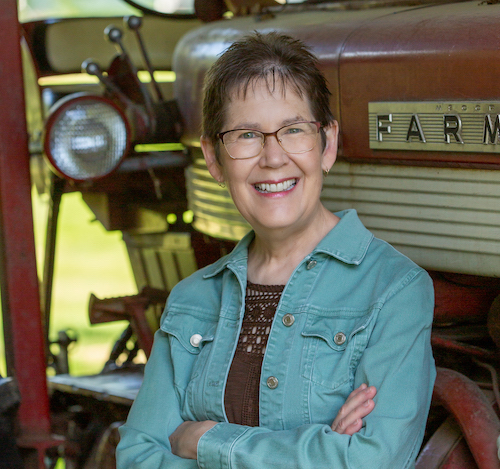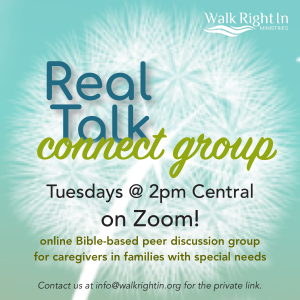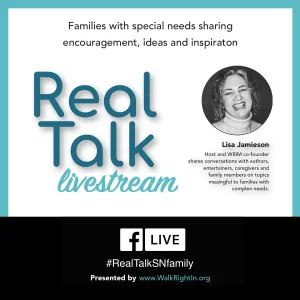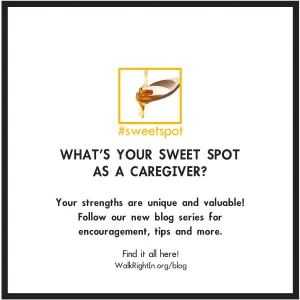
When caregiving sparks stress instead of joy, what can you do about it? That’s a question I began mulling over since I posted a survey on my website about stress and compassion fatigue in caregivers way back in 2019.
Within 2 days, the survey had been completed 500 times. Less than a month later, that number had risen to almost 1,500. This was a full year before COVID and the pandemic reared their ugly heads. Keep that in mind while you read through the statistic below.
- 98% of the caregivers said their duties cause extra stress in their daily lives.
- On a scale of 1 to 10, the average stress level of parents was 6.4.
- 91% said caregiving has affected their mental health.
- 87% said caregiving has affected their physical health.

Further analysis can be found the Different Dream website.
To borrow a phrase from Marie Kondo’s book, The Life-Changing Magic of Tidying Up, the statistics show that caregiving is sparking as much stress as joy in parents raising kids with special needs. Which is why I’ve been pondering the question posed earlier: when caregiving sparks stress instead of joy, what can you do about it?
Look for Signs of Post-Traumatic Growth
One thing we can do is remember that traumatic and stressful events can lead to positive outcomes. Researchers Richard Tedeschi and Lawrence Calhoun refer to this phenomenon as post traumatic growth. They identified seven areas of growth that spring in people who struggle with challenging life circumstances.
- Greater appreciation of life
- Greater appreciation and strengthening of close relationships
- Increased compassion and altruism
- The identification of new possibilities or a purpose in life
- Greater awareness and utilization of personal strength
- Enhanced spiritual development
- Creative growth
As caregivers, we can look for these signs of post-traumatic growth in our lives. While you may not find evidence of all seven, you may be surprised by how much growth you have experienced.
Cultivate Greater Post-Traumatic Growth
A simple way to cultivate greater post-traumatic growth in yourself and those around you is to capture your caregiving stories so they don’t get lost. Here are a few ideas about how to do so:
- Tell your stories to family members. Record them on audio and video.
- Write them down for yourself only, in letters to a few people, or for broader publication.
- Take pictures of the people in your stories and add captions for the benefit of future generations.
Now, take a moment to make a list of caregiving stories you want to capture and preserve for yourself and those you love.
Validate Your Emotions
Some, but not all, aspects of caregiving stress can be reframed as positives. Therefore, it’s important for us to identify and validate the negative emotions associated with caregiving stress. This exercise, which Kristin Faith Evans introduced in a Different Dream guest post, can guide you through the process.
- Name a painful emotion related to the pandemic.
- Say to yourself, “It makes sense I’m feeling this way considering _________________________.”
- Give yourself time to feel and release hard emotions.
Move Toward Acceptance
Once you’ve validated your emotions related to caregiving stress, Kristin encourages parents to move on to acceptance by asking these questions:
- What have I lost because of caregiving?
- What have I gained because of the pandemic?
- What have I learned through this experience?
- How has my faith been strengthened?
- What permanent changes do I need to accept?
Seek Professional Help
The above strategies can alleviate stress, but parents who engage in day-to-day caregiving may need the services of a mental health care professional to help spark their joy again. This post offers simple steps to help caregivers find qualified therapists with a Christian worldview near where they live.
The caregiving life can be stressful. It can also spark growth, joy, and enhanced spiritual development. Wise caregivers will use the five strategies above to reduce stress, and at the same time increase joy and faith to benefit themselves and those they love.

Jolene Philo grew up in a caregiving family and raised a son with medical special needs. As a teacher, she created an inclusive classroom for children with disabilities for 25 years. She’s authored several books for the special needs and disability community, including Every Child Welcome: A Ministry Handbook for Including Kids with Special Needs and Sharing Love Abundantly with Special Needs Families: The 5 Love Languages® for Parents Raising Children with Disabilities. She hosts the award-winning blog, www.DifferentDream.com. See Jane Run!, the first cozy mystery in her series that includes characters with disabilities was published in June of 2022. Jolene and her husband live in a multigenerational family in Polk City with her daughter, son-in-law and their two young children.











0 Comments